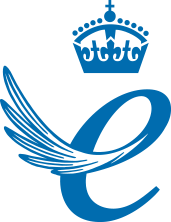%20blog%20picture.png?width=600&name=Alpha_TrInstrs_600x300%20(002)%20blog%20picture.png)
We sat down with language expert Dr Uta Lausberg for an insightful discussion about her successful career as a certified legal translator. She describes her early journey into translation, the important skills needed to excel in the field, the role post-editing plays in the world of translation and what the future holds for the industry in the years to come.
Let’s jump right into the conversation.
How exactly did you get into the translation industry?
In middle school, I had my first English classes and I discovered a love for languages. I had a very good English teacher and I really enjoyed it. Once I turned 12 and entered high school, I made the decision to become a translator.
If I look back on my life, it's clear to see that I've always been translating to some extent. For example, when I was 18, my father became the mayor of our town. I travelled with him on a cultural exchange to a French town. As I learned French, I translated for him and really loved it.
Are there any specific skills or qualifications that have helped you excel in your role as a legal translator?
My technical skills came from a career in linguistics plus some additional education in finance. I did a post doctorate for a year and then worked for three years as a lecturer teaching undergraduate linguistics and translation. In my late thirties, I started a master's program in finance to appease my love of numbers and specialised in financial law and translation.
This combination of backgrounds in linguistics, translation and data analysis really gave me the tools to excel in translation.
I think there is also an element of my upbringing and culture that comes into play. As a translator, you have to care about the details. There have been instances where clients want me to overlook ‘small’ linguistic errors in an attempt to save costs. That doesn’t sit well with me. I refuse to submit flawed content or to tarnish the culture or language of another country in the name of efficiency. Ultimately, it comes down to your dedication to quality. So, regardless of the cost, I try to remain vigilant and stick to my principles as a translator.
What do you find most appealing about working in legal translation?
I've always been fascinated by languages and the search for the perfect translation. I especially enjoy translating a technically complex body of text, particularly in finance.
Working in linguistics also allows me to combine my love of languages with technology. And, it's about the translation industry community. You’re always part of a team. Although I spend a lot of time at my desk, I enjoy working with other specialists and peers, some of whom I have never met. But we communicate really well and we respect each other’s work. It’s a great working environment.
Also, I enjoy post-editing and it has been beautiful to witness the evolution of machine translation first-hand. We laughed about it 20 years ago, but now it is really taking form.
Is there a big learning curve when it comes to translation?
As with any job that revolves around culture and technology, there's always something more to learn. Year after year, new technologies and programs are being employed by clients, and it's your responsibility as a translator to stay informed.
Sixteen years ago, when I was taking my first steps towards translation, everybody used Trados software. Of course, there were exceptions, with a few clients drawn to other software, but Trados was the industry standard. As time went on, more and more platforms became available, and now the market is saturated with different versions of the same application.
I also think that as a translator, you work on innovative content. There are always new regulations and data and privacy statements that require translation, such as in pharmaceuticals or politics. As a translator, it’s exciting to read about these new advances and explore uncharted territory. You’re at the heart of it all.
Machine translation is becoming more and more common in the legal vertical. What are some of the challenges posed by post-editing?
If content isn't fulfilling the specifications of your client or appropriate for your target audience, editing is employed as a means of modifying that product to better align with its intention. In that vein, post-editing is all about identifying your skills as a translator and using them to amend the work of machines.
You are there as a fail-safe for the system, almost teaching the program how to appropriate more emotive language. Some languages carry more complexity than others, and as such, the computer will sometimes struggle to string together translations in the ways that humans would. As a post-editor, you need to identify these hurdles and enable the computer to piece together a more natural translation of the content.
To be a successful post-editor, it's helpful to have a deeper understanding of language. Otherwise, it can be easy to miss the intricate mistakes that aren't always obvious at first glance. Slight spelling errors and grammatical issues can easily slip through the cracks of the system, and if you're not familiar with the language, they'll slip past you, too.
Details are everything when it comes to post-editing, and every mistake that you make can have drastic consequences on the meaning of the content. Personally, I think you need a lot of experience in translation in order to be a post-editor, and that's just a simple fact of the industry.
Where do you see your profession heading in the next five years?
Digital automation will be a big part of translation and linguistics, with the industry relying on software tools and computer programs. The challenge is that they still lack the human understanding of complex language. As it stands, a computer’s capacity to translate and assess language ends at the surface, with the appropriate words being selected from a language database. There’s no telling how long it'll be before technology can account for context, but looking at its progression over five short years, it's obvious that there's a lot of potential.
Comment below to let us know about your experience in the translation industry and reach out to us for information on translation and post-editing.



